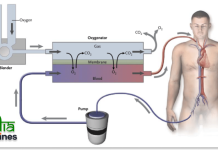
Smoking is one of the most preventable causes of death and disease worldwide, yet millions of people continue to smoke despite the well-known health risks. While the dangers of smoking on respiratory health and cancer are often highlighted, the detrimental effects of smoking on heart health are equally significant and deserve thorough attention. Understanding these effects is crucial for individuals seeking to protect their cardiovascular health and for public health efforts aimed at reducing smoking rates. In this blog, we will explore the comprehensive impact of smoking on heart health, supported by scientific evidence and expert insights.
Heart Specialist Doctor Ravinder Singh Rao. Call now to Appointment
The Cardiovascular System and Smoking
The cardiovascular system, comprising the heart and blood vessels, is essential for transporting oxygen and nutrients to tissues and organs throughout the body. A healthy cardiovascular system is vital for overall health and well-being. Smoking, however, introduces a multitude of harmful chemicals into the body, including nicotine, carbon monoxide, and tar, which adversely affect the cardiovascular system in several ways.
Mechanisms of Damage
1. Atherosclerosis
Atherosclerosis, the buildup of fatty deposits (plaques) in the arteries, is a major contributor to cardiovascular diseases. Smoking accelerates the development of atherosclerosis through several mechanisms:
- Endothelial Dysfunction: The endothelium is the inner lining of blood vessels that plays a critical role in maintaining vascular health. Smoking damages the endothelium, making it more permeable to lipids and more prone to inflammation, which are key steps in the formation of atherosclerotic plaques.
- Oxidative Stress: Smoking increases the production of reactive oxygen species (ROS) and reduces the availability of antioxidants in the body, leading to oxidative stress. This oxidative stress contributes to the oxidation of low-density lipoprotein (LDL) cholesterol, a key process in plaque formation.
- Inflammation: Smoking promotes chronic inflammation in the arteries, which further exacerbates the process of atherosclerosis. Inflammatory markers, such as C-reactive protein (CRP), are often elevated in smokers, indicating heightened inflammation.
2. Hypertension
Hypertension, or high blood pressure, is another significant risk factor for cardiovascular disease, and smoking is known to contribute to its development:
- Nicotine: Nicotine, the addictive substance in cigarettes, stimulates the release of adrenaline, which increases heart rate and constricts blood vessels, leading to elevated blood pressure. Chronic exposure to nicotine can result in sustained hypertension.
- Reduced Nitric Oxide Availability: Nitric oxide (NO) is a molecule that helps relax blood vessels and lower blood pressure. Smoking reduces the availability of NO, contributing to vascular stiffness and increased blood pressure.
3. Thrombosis
Smoking increases the risk of thrombosis, the formation of blood clots, which can block blood flow and lead to heart attacks or strokes:
- Platelet Activation: Smoking promotes the activation and aggregation of platelets, making blood more prone to clotting. This increases the risk of thrombotic events such as heart attacks and strokes.
- Fibrinogen Levels: Smokers often have elevated levels of fibrinogen, a protein involved in blood clot formation. High fibrinogen levels further increase the risk of thrombosis.
Consequences of Smoking on Heart Health
The mechanisms described above contribute to several serious cardiovascular conditions, highlighting the severe impact of smoking on heart health.
1. Coronary Artery Disease (CAD)
Coronary artery disease, the narrowing or blockage of the coronary arteries, is a leading cause of heart attacks and one of the most common cardiovascular diseases associated with smoking:
- Increased Risk: Smokers are at significantly higher risk of developing CAD compared to non-smokers. The risk increases with the number of cigarettes smoked per day and the duration of smoking.
- Reduced Oxygen Supply: Carbon monoxide from cigarette smoke binds to hemoglobin in red blood cells, reducing their ability to carry oxygen. This decreases the oxygen supply to the heart muscle, exacerbating the effects of narrowed coronary arteries.
2. Heart Failure
Heart failure, a condition in which the heart cannot pump blood effectively, is another serious consequence of smoking:
- Weakened Heart Muscle: Chronic high blood pressure and CAD can weaken the heart muscle over time, leading to heart failure. Smoking-induced atherosclerosis and hypertension are key contributors to this process.
- Left Ventricular Dysfunction: Smoking has been linked to left ventricular dysfunction, a condition where the left ventricle (the heart’s main pumping chamber) does not function properly. This can progress to heart failure.
3. Peripheral Artery Disease (PAD)
Peripheral artery disease, the narrowing of arteries in the limbs, is also strongly associated with smoking:
- Impaired Blood Flow: PAD reduces blood flow to the extremities, leading to pain, cramping, and in severe cases, tissue damage or gangrene. Smoking is a major risk factor for PAD due to its role in atherosclerosis and blood vessel damage.
4. Aortic Aneurysm
An aortic aneurysm is an abnormal bulge in the wall of the aorta, the largest artery in the body, and smoking significantly increases the risk:
- Aortic Wall Weakening: Smoking weakens the walls of the aorta, making them more susceptible to aneurysms. The risk is particularly high for abdominal aortic aneurysms.
Research Findings on Smoking and Heart Health
Numerous studies have established the connection between smoking and cardiovascular disease, providing compelling evidence of the harmful effects of smoking on heart health.
1. Framingham Heart Study
The Framingham Heart Study, a landmark longitudinal study, has provided extensive data on the cardiovascular risks associated with smoking:
- Increased Risk: The study found that smokers had a significantly higher risk of heart disease and stroke compared to non-smokers. The risk was proportional to the number of cigarettes smoked per day.
2. INTERHEART Study
The INTERHEART study, a large international case-control study, identified smoking as one of the most important modifiable risk factors for heart attacks:
- Attributable Risk: The study concluded that smoking accounted for a substantial proportion of the risk of heart attacks globally, emphasizing the need for smoking cessation as a primary prevention strategy.
3. Surgeon General’s Report
The U.S. Surgeon General’s reports on smoking and health have consistently highlighted the cardiovascular risks of smoking:
- Definitive Conclusions: These reports confirm that smoking causes cardiovascular disease and that quitting smoking reduces the risk of heart disease and improves overall cardiovascular health.
The Benefits of Quitting Smoking
While the risks associated with smoking are severe, the benefits of quitting smoking are substantial and begin to manifest almost immediately:
1. Immediate Benefits
- Reduced Heart Rate and Blood Pressure: Within minutes to hours of quitting smoking, heart rate and blood pressure begin to normalize.
- Improved Circulation: Blood circulation improves within weeks of quitting, reducing the risk of blood clots and enhancing overall cardiovascular function.
2. Long-Term Benefits
- Reduced Risk of CAD and Stroke: Over time, the risk of coronary artery disease, heart attacks, and strokes decreases significantly. Former smokers can eventually have a similar risk of heart disease as non-smokers.
- Improved Heart Function: The heart’s ability to pump blood improves, reducing the risk of heart failure and other cardiovascular conditions.
Conclusion
The evidence is overwhelming: smoking has a profound and detrimental impact on heart health. From promoting atherosclerosis and hypertension to increasing the risk of thrombosis and heart failure, the harmful effects of smoking on the cardiovascular system are extensive and severe. However, the benefits of quitting smoking are equally significant, offering individuals the opportunity to greatly improve their heart health and overall well-being.
Public health initiatives, smoking cessation programs, and policy measures are essential in reducing smoking rates and mitigating the cardiovascular risks associated with smoking. By understanding the extensive impact of smoking on heart health and taking proactive steps to quit, individuals can protect their hearts and contribute to a healthier society.
In summary, smoking poses a major threat to heart health, but quitting smoking can lead to significant improvements in cardiovascular function and a reduction in the risk of heart disease. It is never too late to quit smoking and start on the path to a healthier heart and a longer, healthier life.




































Hello! This is my 1st comment here so I just wanted to give a quick shout out and say I truly enjoy reading through your blog posts. Can you recommend any other blogs/websites/forums that deal with the same topics? Thanks!
certainly like your website however you need to take a look at the spelling on quite a few of your posts. Many of them are rife with spelling problems and I in finding it very troublesome to tell the reality on the other hand I?¦ll certainly come again again.